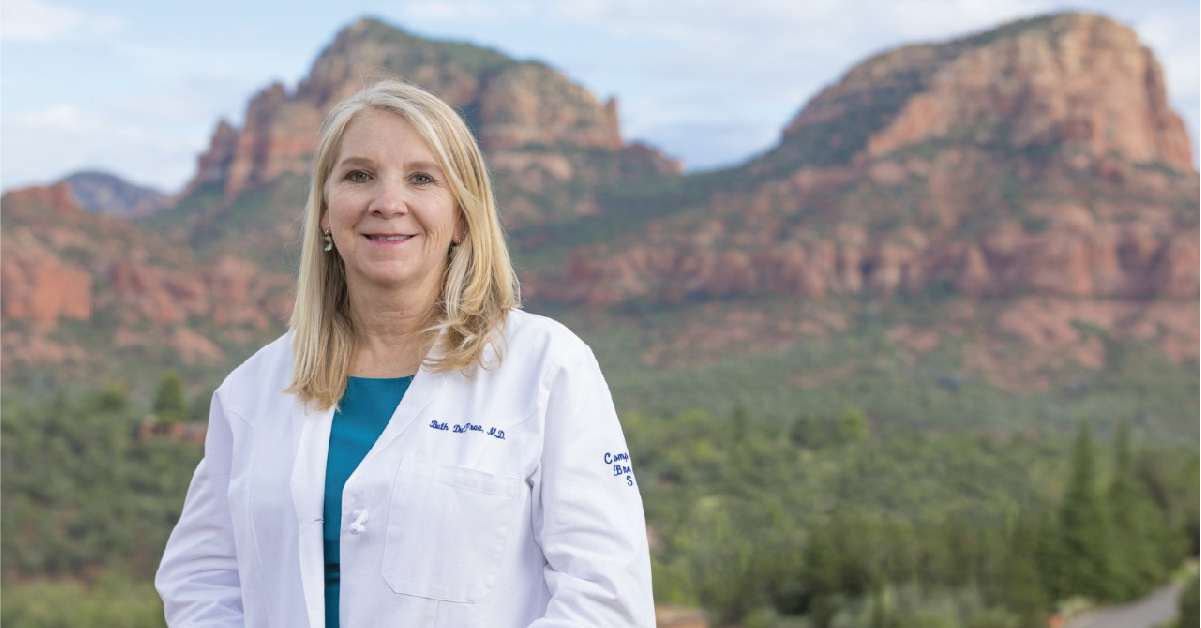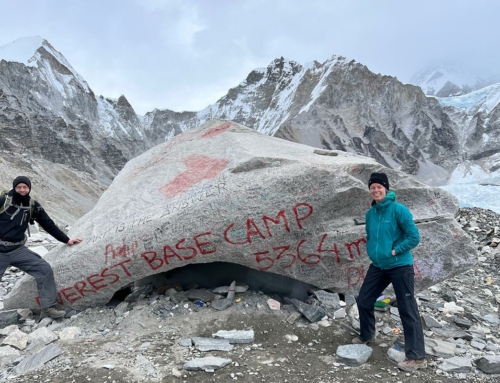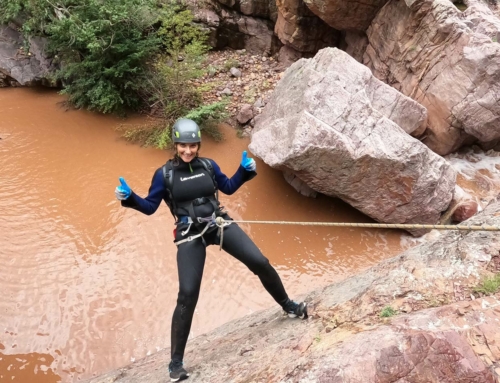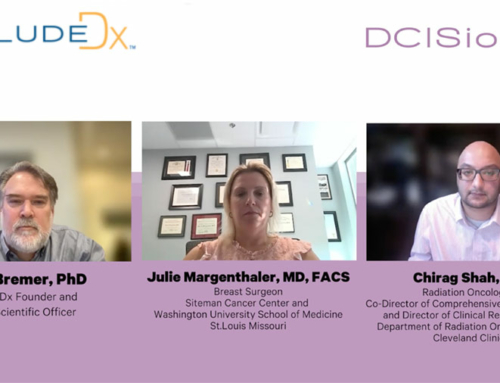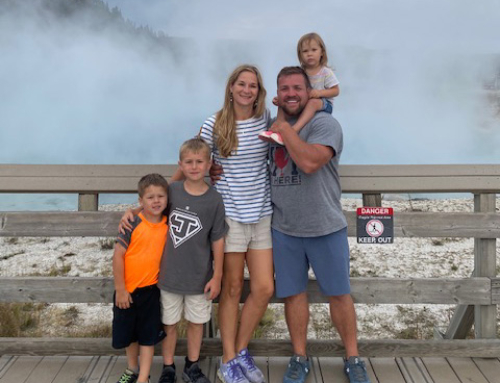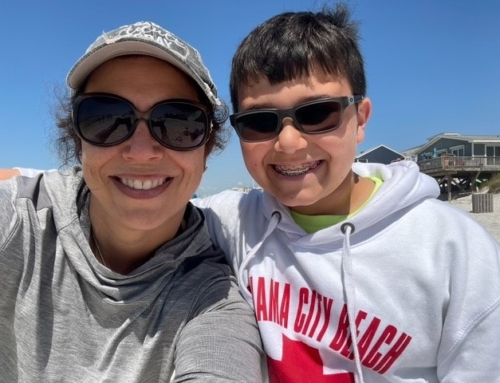It’s a known fact of life that some people on this Earth are meant to be strong leaders and others are meant to be strong followers. It’s also a known fact of life to anyone who has ever encountered Dr. Beth DuPree, that she happens to fall into the former category.
From being one of the first to put fresh tissue on dry ice and ship it to Amsterdam in advocation for a then-new genomic test called Mammaprint, to going back to school in order to educate herself on the potentially life-changing benefits of psychedelics in cancer patients, her dedication to pushing the envelope on behalf of her patients’ best interests knows no bounds. And it never did, either.
Ever the trendsetter, the east-coast breast surgeon, now practicing at The Cancer Centers of Northern Arizona Healthcare in Sedona Arizona, has been forging new paths in pursuit of the best patient care possible since she first entered the profession over 30 years ago.
“I’ll never forget the day I first heard about a minimally-invasive procedure called a laparoscopic cholecystectomy (a minimally invasive surgery to remove the gallbladder and gallstones) as a third-year general resident,” she says. “My attendings were super traditional, not particularly forward-thinking members of the old-boys network and laughed at it saying it was a gynecologist’s procedure and would never take off. I realized in that moment that as physicians, we can continue to do the same-old, same-old, or we can take a risk, trust the science, and actually change the way the world works in the process.”
“Take risks in life based upon what you may gain, not what you fear you may lose.”
When the creators of the procedure asked for volunteers to travel to Georgia to learn how to do it, Dr. DuPree’s was the only hand raised. And in doing so, she was on the cutting edge of what ultimately became the standard of patient care in those attendings’ hospital and all others across the world not too long after.
As a budding general surgeon just four years into her general surgery practice, she was introduced to Dawn, fondly nicknamed Ducky, a pregnant expectant mother who had found a lump in her breast at the beginning of her pregnancy. Her first doctor had waved it off as a harmless fibroadenoma in the beginning of her pregnancy, but on April 8th, the day after giving birth to her little boy named Kevin, she was found to have Stage IV metastatic breast cancer.
“She fought hard for a year, but passed away a week before Kevin’s first birthday,” she says. “Dawn’s sister gave me a beautiful silver necklace of hers with a little duck pendant to keep her close to me. Dawn is the reason I chose to become a breast surgeon.”
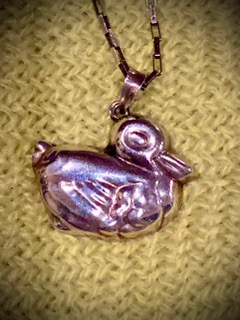
And so she did. Years later, Dr. DuPree is now a world-class surgeon specializing in diseases of the breast and integrative medicine. Every day, she combines the very best, newest technology that western medicine has to offer with the centuries-old, tried-and-true practices of eastern medicine, approaching each patient as a holistic being.
So what exactly is the very best, newest technology that western medicine has to offer? Genomic testing.
“Nearly every patient in my practice gets a genomic test. There are triple negative and HER2/neu positive cancers that genomics do not change my management so I do not order genomics. With DCIS and estrogen receptor positive breast cancers, when you look at a tumor– its size, margins, grade, patient age, etc.– you get its face value. But you have no clue whatsoever how it’s going to behave,” she says. “In the year 2021, we are not giving our patients their best care plan if we fail to use genomic data to guide their care. And any doctor who is not willing to look at the science behind genomics needs to take a good look in the mirror.”
Like every great breast oncologist, Dr. DuPree has a particular interest in ductal carcinoma in situ (DCIS) due to the treatment ambiguity surrounding traditional diagnosis and the thin line between potential overtreatment and undertreatment. Therefore, as a proud early-adopter of game-changing technology, Dr. DuPree is a champion of DCISionRT.
“It was natural for me to embrace the technology PreludeDx put out there,” she says. “We all want to treat patients appropriately. But before DCISionRT, we were trying to decide who gets radiation based on grade, size, receptors and margin status. And almost half the time, we now find that face value would have been misleading.”
As a surgeon, she relies on like-minded radiation oncologists to partner with her in this approach. She hit the jackpot with Dr. David Beyer, the past president of ASTRO and a forward thinking healthcare provider.
“When we get one of those surprising DCSionRT scores where we thought for sure someone either would or would not significantly benefit from radiation, we discuss at tumor board ‘Well, this is why we order these tests. Because I can look at a pathology report and the cells, but at the end of the day, the tumor’s smarter than we both are and we ought to listen to what the tumor is telling us.’”
With her support of genomics across her practice comes personalized patient care. And with all breast cancer survivors, come more what she terms the “cliff appointments,” the appointment right at the end of treatment– whether it’s surgery, chemo, radiation or endocrine therapy– where she talks to her patients about what happens next and where they are in their healing journey.
“There’s a certain feeling of safety that comes with being in the midst of treatment because they’re actively doing something to fight against the cancer. They’re often paralyzed with fear and can’t bear to look forward into their future, but there’s this sense of control in the right now,” she says. “And then they get to the end of treatment and find themselves on the edge of a cliff, forced to look out into the vastness, permission to consider that they’ll have a long life and now need to decide how to live it.”
The cliff is where cancer ends, survivorship begins and she inspires them to work toward what she calls Thrivership. Living a fulfilling bliss-filled life with peace in their heart. She reminds her patients that none of us get out of this life alive and we are each given a blank page each day to write our story.
For years and years of college, medical school and residency, surgeons are taught how to fix people, cure disease, cut cancer out and stitch people back up again. But as Dr. DuPree points out, that’s where the textbooks end. In western medicine, they are taught to treat the disease, not the person but that is not true healing. Healing requires attention to the mind and spirit as well as the body.
To educate and empower her colleagues and patients, she shared her healing journey in her first book, The Healing Consciousness: A Doctor’s Journey to Healing. The book chronicles her own journey to healing through life’s adversities and experiences. It is a true story that will make you laugh, make you cry and open your heart.
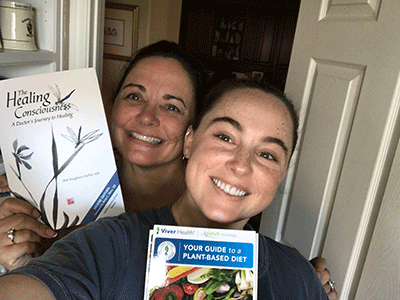
For those lucky individuals who are local, she goes a step further. In 2007, after publishing the best seller, Dr. DuPree founded the Healing Consciousness Foundation (HCF) to provide cancer “thrivers” with opportunities to improve their quality of life, all free of charge. These services include nutrition and cooking classes, exercise training, reflexology, acupuncture, lymphatic massages, art therapy, post-operative garments such as lymphedema sleeves and breast prosthesis, post-chemo hair and wig care classes, psychological care, and annual retreats just to name a few.
The HCF provides education on how to eat, drink (or rather, not drink), exercise, meditate, journal, fast and sleep your way to your best post-cancer life. It walks readers through how to find support groups and why survivorship– or as she calls it, thrivership– is enhanced through community. She breaks down what supplements to consider taking and how to identify areas in your life that are stressors and spike your cortisol levels so that survivors and their loved ones all across the world can benefit from her hard-earned advice.
In addition, educating patients, both near and far, on the benefits of all of the above, she hosts a conference every year for young breast cancer surgeons in training to learn how to better care for themselves and in turn set their patients up for a life of true survivorship and Thrivership beyond the cliff.
“An in-depth lecture deals with fertility preservation,” she says. “Imagine having and beating cancer at a young age only to find out that your medical team forgot to mention that you might want to consider freezing your eggs. Or that perhaps we cured you, but as a result you can no longer enjoy intimacy with your partner because it is so painful down there. We have a world class expert, Dr Susan Kellogg, speaking on intimacy that delves into all of that and teaches young surgeons how to have that conversation with their patients.”
This upcoming year’s conference happens to take her back to her roots on the east coast, back to where she first met Dawn and found her passion for fighting breast cancer in her honor. She’s kept the little Ducky necklace all these years, through each patient, each conference, and each chapter of life. But little Kevin isn’t so little anymore. He’s in his 20s and soon to be married. When she goes to Philly for the conference, she plans to meet up with him and give him his mother’s necklace.
“Ducky’s been with me a long time and she’ll be in my heart forever,” she says. “Dawn is the reason why I do what I do, and it’s time for baby Kevin to have Ducky now.”

